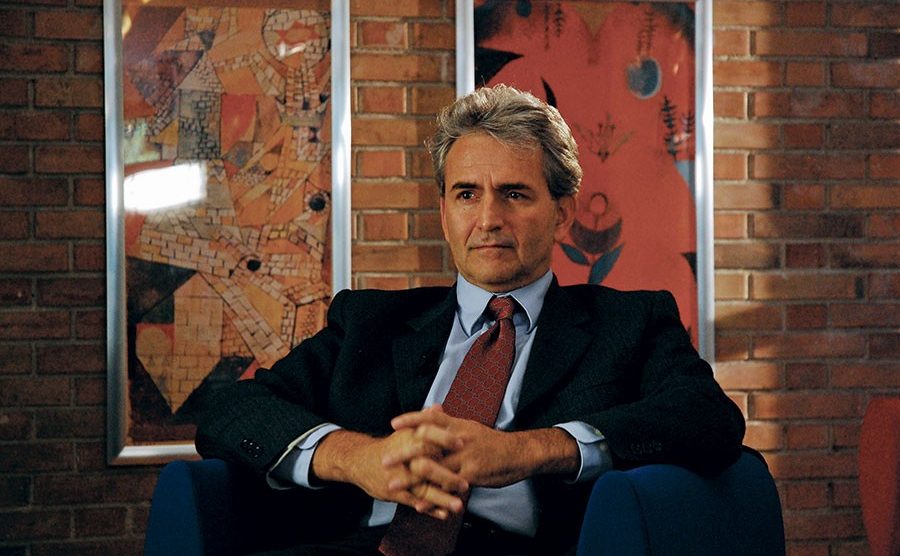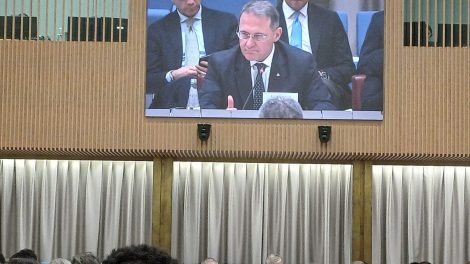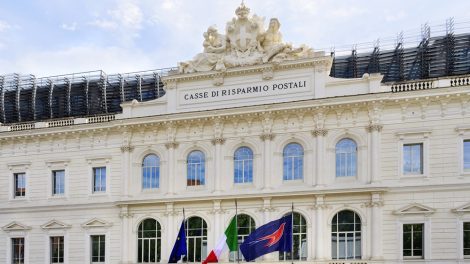As European Council President Antonio Costa met Chinese Premier Li Qiang during the ASEAN Summit, U.S. President Donald Trump is preparing for his first face-to-face meeting with Xi Jinping since the start of his second term. Two meetings that underscore the deep interconnection between the U.S.–China and EU–China dossiers, with the transatlantic relationship in the background.
Why he matters: Michael Plummer is one of America’s leading economists, specialising in international economic integration and trade policy. At SAIS Europe in Bologna, he analyses the interplay between the United States, Europe, and Asia. He served as Director of SAIS Europe from 2014 to 2023 and has advised several governments on the Trans-Pacific Partnership (TPP) negotiations and ASEAN governments on economic integration.
Q: What can we expect from the possible U.S.–China trade deal?
A: There will be an announcement, and it will be presented as a great success. However, it will be essential to examine the substance. We are likely to see a temporary truce, which may last for about a year.
- President Trump has threatened very high tariffs. He won’t impose them, but he won’t lift everything either. A significant portion will remain—around 39 per cent—while Beijing is likely to offer some concessions, especially regarding export controls on critical minerals.
- It will be a fragile equilibrium, where tensions persist but remain manageable within a framework of relative stability.
Q: How is the United States responding to competition with China?
A: Washington is intensifying efforts to diversify its sources of supply, particularly for critical minerals.
- The risk for China is that it may have played its cards too early, giving the U.S. time to its advantage. The U.S. is working with partners such as Australia, Canada—despite current political frictions—and Argentina to reduce dependence on Beijing.
- On geopolitical issues, the professor notes that “sensitive topics will be left off the table: no Taiwan, no South China Sea, and probably not even Ukraine.
- “Trump wants to portray himself as the artist of the deal, to claim a domestic win and show the world he can strike a bargain with China.”
Q: What impact could this have on the European Union?
A: The deal that is taking shape is probably the best possible outcome for Europe. China’s export restrictions on critical minerals have also affected the EU.
- Any form of stability is positive, but the EU must draw a more profound lesson: it needs to learn to think for itself. Trump doesn’t see himself as the leader of the West, but solely as the leader of the United States. In the past, Europe could afford a certain degree of strategic dependency; today, it no longer can.
Q: Can Europe achieve genuine autonomy?
A: The EU struggles to overcome its internal political chokepoints.
- We cannot finalise a trade agreement with Mercosur due to agricultural issues, or with Australia over a few tons of beef. It’s a structural limitation. In the U.S., there are differences between states—the interests of Florida aren’t the same as those of California—but the federal system makes it possible to overcome them. Europe doesn’t yet have that kind of integrated decision-making capacity.
Q: What role can Italy play in this landscape?
A: Prime Minister Giorgia Meloni operates in a very complex context—given the ferocity of Italian politics—trying to maintain a delicate balance. She has a direct channel with Trump, seeks to act as a transatlantic bridge, and keeps pragmatic ties with China.
The bottom line: Professor Plummer’s reflections come at a crucial time: on the eve of a possible new understanding between Washington and Beijing, and as Europe faces the challenge of redefining its strategic autonomy.
- For Italy, he adds, “it’s challenging”. The task is to manage this dual-track approach at the political level, while addressing domestic economic issues—such as those linked to the electric vehicle sector.
- “Yet Italy can benefit from the current phase of political stability, leveraging the European framework and the EU’s rethinking of international relations to advance its national interests.”





